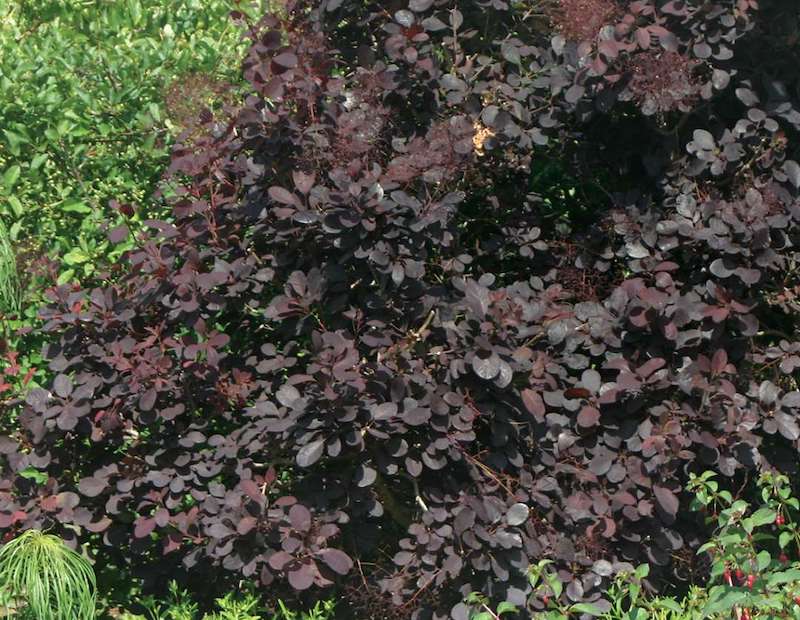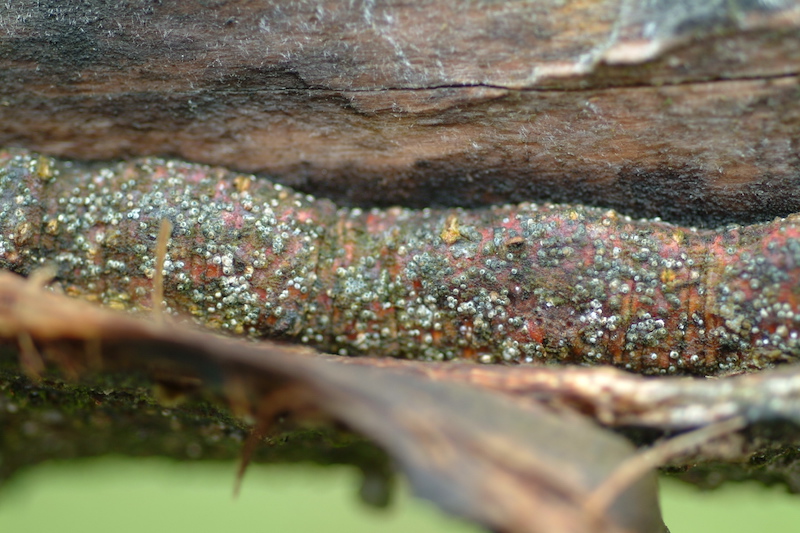Compared to many other ornamental tree and shrub options, Smoke Trees (Cotinus spp.) are not particularly susceptible to insect infestation. While no plant is truly safe from insects and disease, you can rest easy knowing that the Smoke Tree is low-maintenance. Nevertheless, it is always a good idea to set aside some time regularly to get eyes on your plants and check for signs of pest damage, including holes, yellow or browning, and spots on the leaves. Smoke Trees are typically left alone by deer and rabbits.

Common Plant Smoke Tree Pests
San Jose Scale
A major pest of fruit trees, San Jose Scale is a small sap-sucking insect that can kill limbs or entire trees if left uncontrolled. Like other scale insects, San Jose Scale has two life stages: mobile (“crawler”) and immobile (females only, “scale”). Crawlers are small, yellow, and have a bristle-like sucking mouth that is longer than its body. Once crawler females find a good location, they attach themselves to the plant and begin secreting a waxy outer layer that protects them, making it difficult to remove or treat them. Male adults remain mobile and very small.

Photo by Ric Bessin, UK
Treating San Jose Scale on Smoke Tree
Treating mature scale insects can be a bit tricky because of the protective waxy layer that covers their body. Being immobile, however, makes them an easier target for predators like lacewings and ladybugs. Scale insects are most vulnerable when they first hatch, before they form a waxy coat, which is why it is so important to regularly scout plants for pest issues before they become a bigger problem.
If you do find adults on your Smoke Tree, apply horticultural oil or insecticidal soap. These are less toxic options than chemical treatments, though they may require multiple applications to be most effective. Always follow instructions on pesticides to keep yourself and your plants safe.
Preventing San Jose Scale on Smoke Trees
Regularly monitoring your landscape for pests and disease is one of the best ways to stay on top of any problems. Keeping your plants healthy will also often allow them to fight off issues without intervention. Avoid spraying plants with insecticides unless they truly need it - unwarranted spraying can kill off beneficial insects and predators and may lead to pesticide tolerance in unwanted insects.
Smoke Tree Pest Chart
|
Pest |
Identifying |
Treating |
|
San Jose Scale |
Crawlers are small, yellow, and have a bristle-like sucking mouth |
Apply horticultural oil or insecticidal soap |
Sources:
"Cotinus coggygria." North Carolina Extension Gardener Plant Toolbox. plants.ces.ncsu.edu
"Cotinus coggygria: Smoketree." University of Florida Environmental Horticulture. hort.ifas.ufl.edu
 |
Author Lynn Gusman - Published 7-27-2023 |
